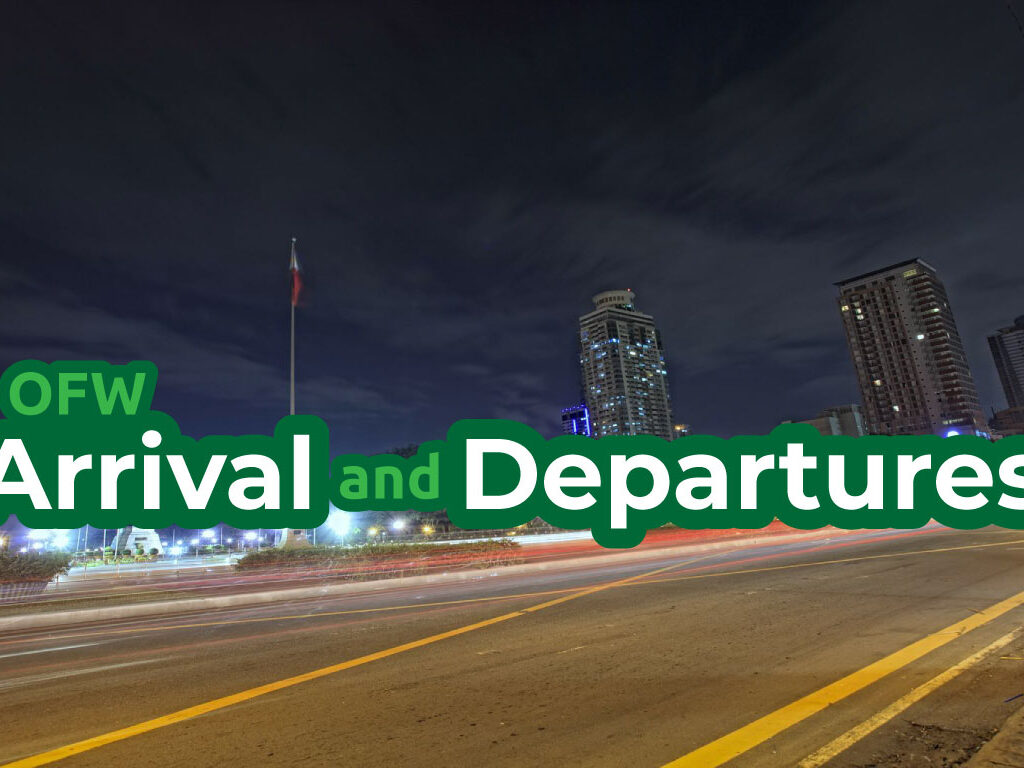No products in the cart.
Coronavirus, COVID-19, Filipino Community, Filipino Community Kuwait
Memorandum Circular of Philippine Overseas Employment Administration for OFWs Arrival and Departures (2020)
The COVID-19 pandemic has profoundly threatened the lives of Overseas Filipino Workers (OFWs) across the globe. With various countries implementing strict lockdown measures, many OFWs were left struggling with the harsh reality of the “No Work, No Pay” situation. As a result, countless Kababayans sought to return home immediately, desiring to be reunited with their families amidst the crisis.
Recognizing the urgency of the situation, the Philippine government stepped in to provide support. Through the Philippine Overseas Employment Administration (POEA), the government issued a critical circular—Memorandum Circular No. 07, Series of 2020—on March 18, 2020. This directive detailed essential guidelines concerning the arrival and departure of OFWs while the country was under Enhanced Community Quarantine (ECQ) and the National State of Calamity.
To ensure that services continued while protecting the health of personnel and OFWs, the POEA implemented a skeletal workforce. This allowed limited yet essential functions to continue while observing strict health protocols. The measure was part of the broader response included in the memorandum, emphasizing the continuity of vital services even during a national emergency.
The directive also tackled pre-employment services. New applications for principal accreditation and manual contract processing were temporarily suspended. Contract processing for both land-based and sea-based OFWs was limited to the POEA Online Processing Systems (POPS-LaB and POPS-Sea). Over-the-counter issuance of Overseas Employment Certificates (OECs) was also halted, and transactions were shifted to the Balik Manggagawa Online system. These actions aligned with the guidelines set in the memorandum to minimize physical interaction and maintain public safety.
With regards to repatriation and arrival, the circular emphasized that returning OFWs had to comply with social distancing measures and quarantine procedures based on national and local government protocols. Government agencies such as the Department of Foreign Affairs (DFA), Overseas Workers Welfare Administration (OWWA), Bureau of Quarantine, and the Philippine Ports Authority worked in coordination to manage arrivals and facilitate smooth transitions for repatriated workers. The document served as a guiding framework to ensure safety during these operations.
For outbound OFWs, those with confirmed international travel schedules were allowed to proceed with their flights upon presenting proof of travel at checkpoints. They were also required to follow social distancing protocols and adhere to health guidelines. The memorandum reinforced that essential workers with clear documentation should still be able to travel, even during quarantine periods.
In terms of licensing and regulatory functions, applications for new licenses and branch authority establishment were deferred until the lifting of ECQ. Panel interviews and Pre-Licensing Orientation Seminars (PLOS) were temporarily postponed. To alleviate potential setbacks, a 30-day extension was granted to agencies whose licenses were due to expire, starting from the day the quarantine was lifted.
Legal assistance services, such as mediation and hearings, were put on hold during the lockdown. However, there was an anticipation of future online hearings and teleconferencing guidelines to adapt to the remote setup. Though these steps were not fully rolled out during the initial implementation of the memorandum, they signaled the shift toward digital solutions in public service.
As the global crisis unfolded, other related government issuances followed, further expanding on the provisions of the original memorandum. These included updates about flight restrictions, quarantine procedures, processing schedules, and coordination with recruitment agencies and foreign embassies. Each one built upon the foundation of the initial policy, adjusting to the evolving needs of the time.
Deployment to high-risk countries was also suspended, except under special arrangements. This restriction was part of the government’s preventative measures to protect OFWs. Agencies were advised to strictly observe this rule in accordance with the overarching safety protocols established by Philippine authorities.
Returning OFWs arriving in groups or through special repatriation programs were supported through a joint effort among the Department of Health, local government units (LGUs), and other concerned agencies. The goal was to ensure they underwent proper screening, received temporary accommodation when needed, and returned to their home provinces safely.
Overall, the government’s rapid and decisive response to the crisis demonstrated a commitment to the welfare of OFWs. The strategic use of a well-crafted memorandum provided clarity and direction in a time of chaos. It helped maintain order, protected public health, and ensured that the rights of our modern-day heroes were upheld.
In conclusion, the issuance and execution of this memorandum served not only as a guideline but also as a symbol of hope and protection. It brought structure during a chaotic period and emphasized the government’s determination to support and safeguard OFWs throughout the pandemic.

You may download the file containing the information of the Memorandum Circular No. 07 Series of 2020.
Through these implemented guidelines, the Philippine government can ensure the safety of the repatriation of the Filipino OFWs. After reading the memorandum, you will be guided on the legal processes of your return in the Philippines. Together with the other Filipinos, we continue to pray for your arrival out of harm’s way.
MUST READ AND SHARE!
Your Ultimate Access to Kuwait Directories in this COVID-19 Crisis
CORONAVIRUS: Kuwait OFW Quarantine Diaries – TABLE OF CONTENTS
The Three Important Steps to Call for Helpline
If you like this article please share and love my page DIARYNIGRACIA PAGE
Questions, suggestions send me at diarynigracia @ gmail (dot) com
You may also follow my Instagram account featuring microliterature #microlit. For more of my artworks, visit DIARYNIGRACIA INSTAGRAM


Peace and love to you.